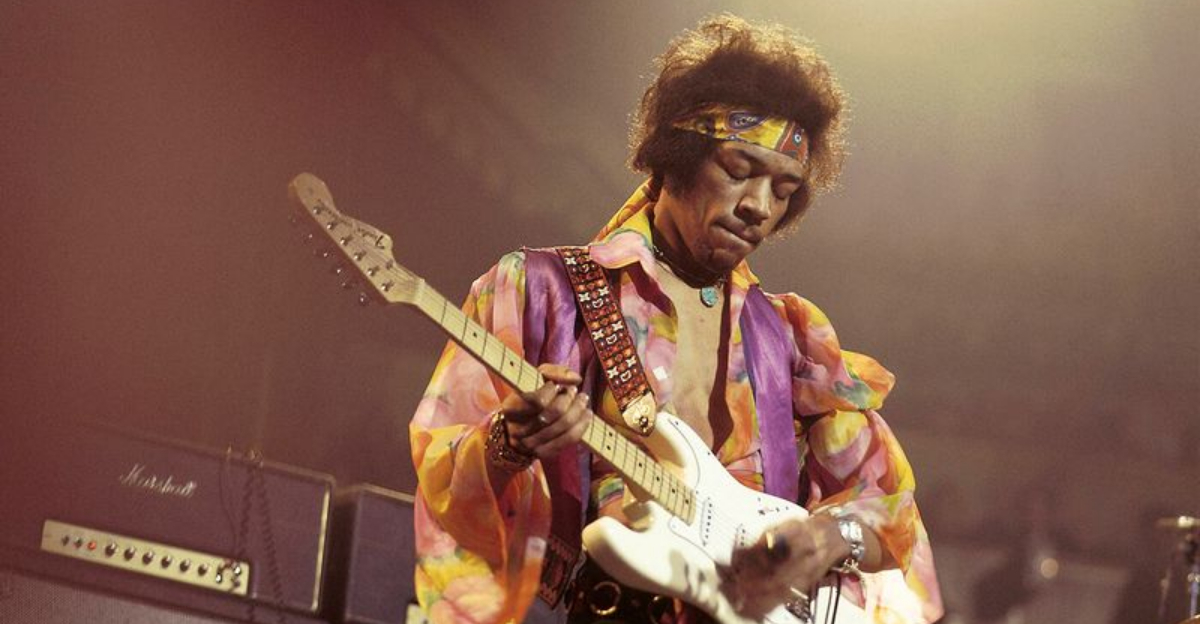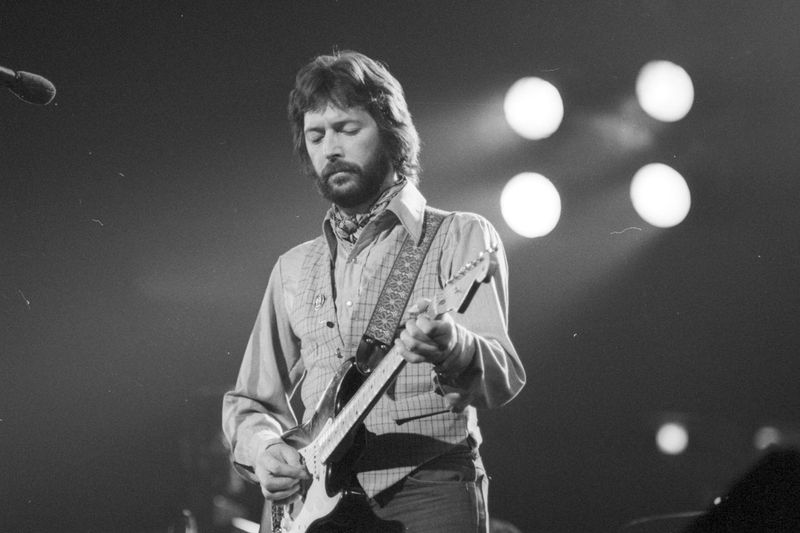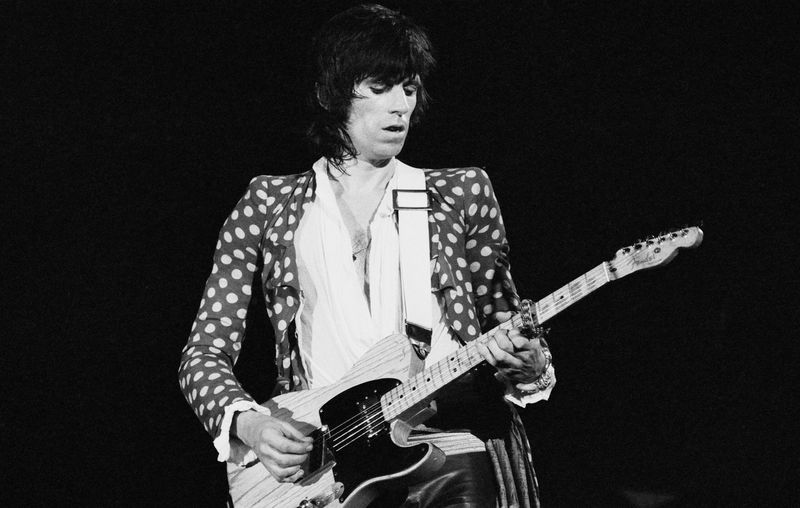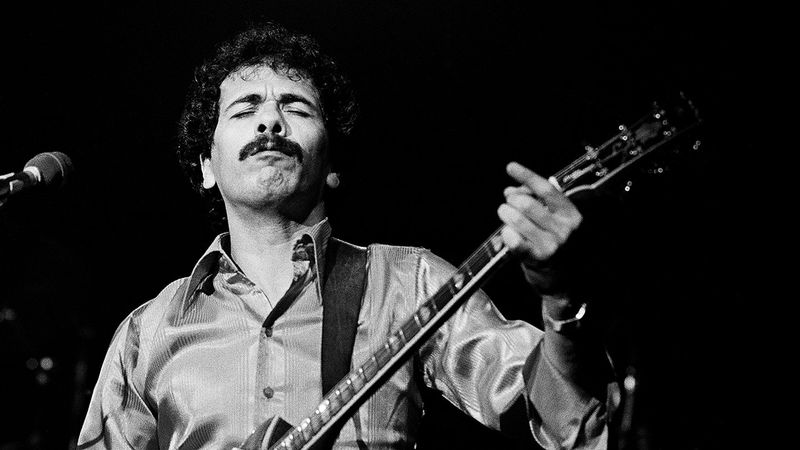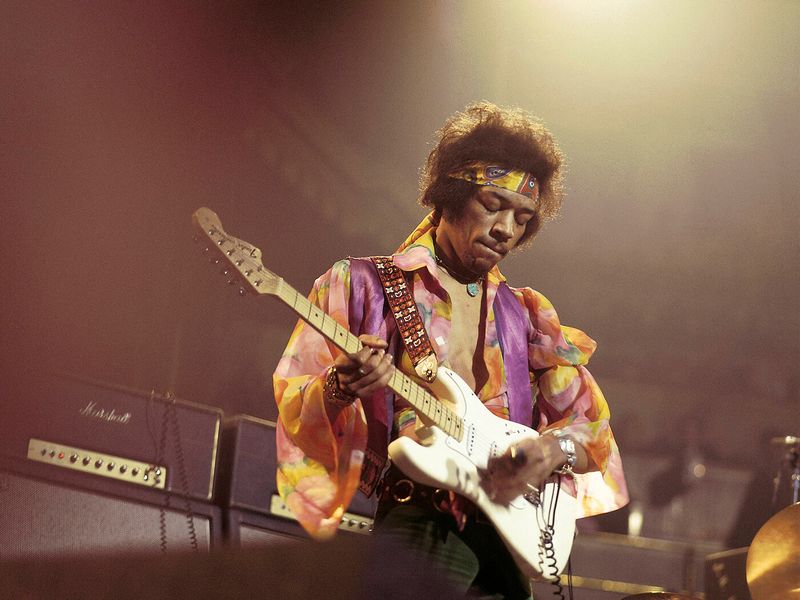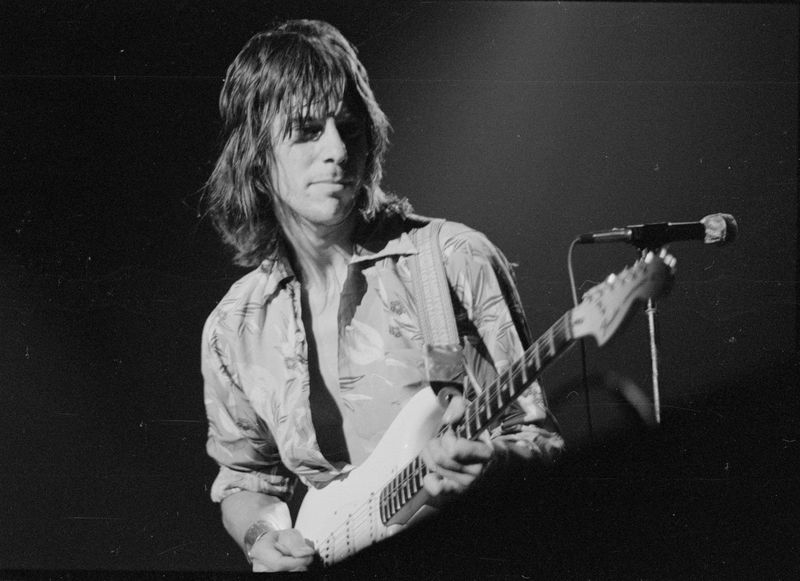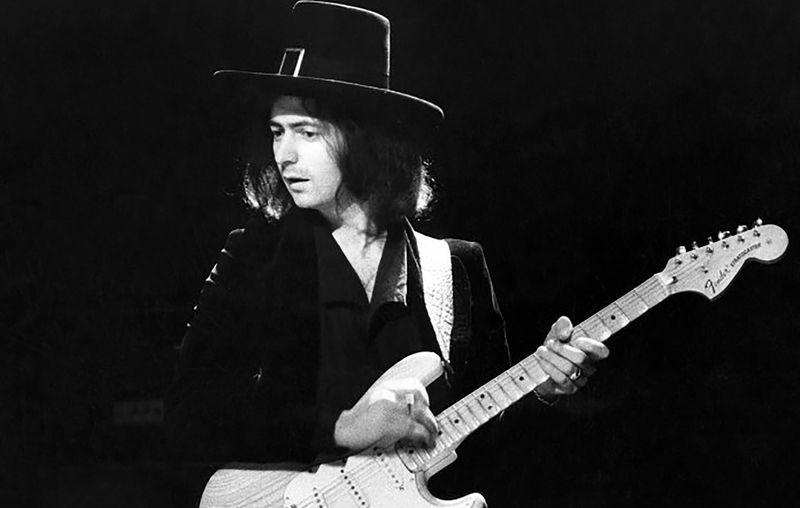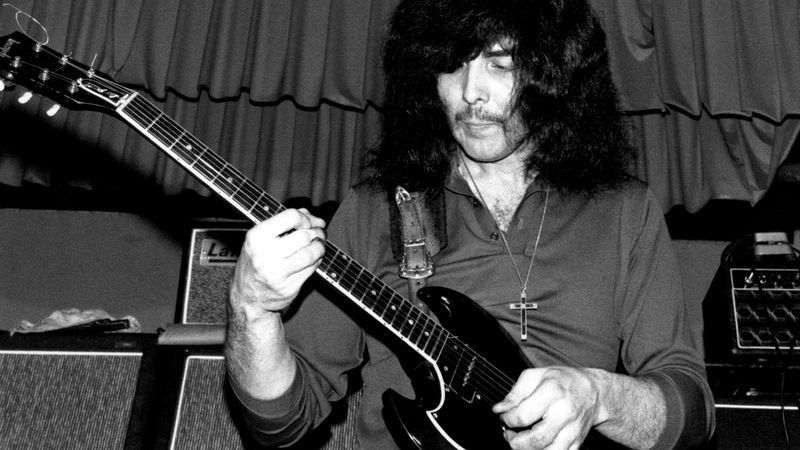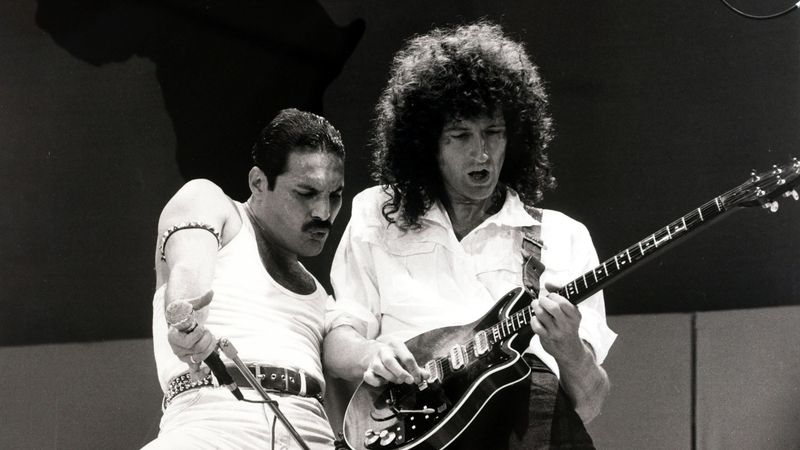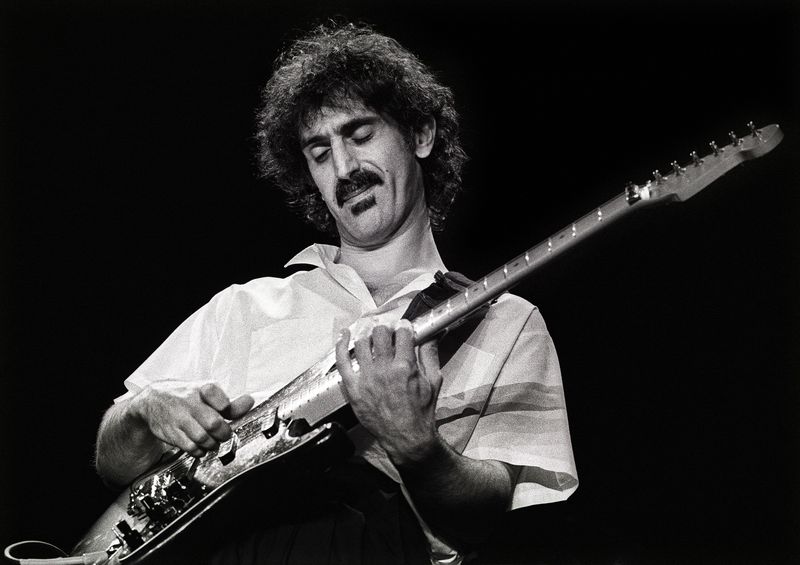The 1960s and 1970s were transformative decades in rock music, characterized by dynamic soundscapes and incredible guitarists who pushed musical boundaries.
This era gave us some of the most legendary figures in music history, whose influence is still felt today.
Explore the artistry and innovation of these 13 iconic guitarists who shaped the sounds of rock during these pivotal decades.
1. Eric Clapton
Eric Clapton, known as “Slowhand,” is renowned for his soulful guitar playing. A key figure in the British blues revival, Clapton’s time with bands like The Yardbirds and Cream solidified his reputation.
His emotive style and technical proficiency made him an influential guitarist of his era. Clapton’s solos, characterized by their fluidity and expressiveness, became a hallmark of his sound.
Beyond his blues roots, Clapton’s work continued to evolve, cementing his place as a versatile and enduring figure in rock music.
2. Jimmy Page
Jimmy Page, the mastermind behind Led Zeppelin, is celebrated for his iconic riffs and complex compositions. His innovative use of guitar effects and recording techniques set new standards in rock music.
Page’s ability to blend different musical elements created a rich sonic tapestry that defined Led Zeppelin’s sound. His live performances, full of energy and virtuosity, captivated audiences worldwide.
From thunderous rock anthems to delicate acoustic pieces, Page’s versatility made him a pivotal figure in the evolution of 60s and 70s rock.
3. Keith Richards
Keith Richards, co-founder of The Rolling Stones, is synonymous with the raw and rebellious spirit of rock and roll. His guitar work, characterized by catchy riffs and rhythmic drive, powered the Stones’ classic hits.
Richards’ partnership with Mick Jagger resulted in some of the most enduring songs in rock history. His distinctive style, blending rock, blues, and country influences, set him apart.
Known for his charismatic stage presence, Richards remains an iconic figure, embodying the essence of rock’s rebellious nature.
4. Pete Townshend
Pete Townshend’s explosive performances with The Who revolutionized rock. Known for his windmill guitar technique and guitar-smashing antics, he brought a theatrical flair to music.
Townshend’s songwriting, marked by introspective lyrics and innovative structures, played a crucial role in The Who’s success. His ability to blend storytelling with powerful rock anthems made him a distinctive voice.
From concept albums to rock operas, Townshend’s creative vision pushed the boundaries of what rock music could achieve.
5. Carlos Santana
Carlos Santana is a trailblazer in rock music, known for his fusion of Latin rhythms with rock and blues. His performance at Woodstock catapulted him into the limelight.
Santana’s guitar style, distinguished by its soulful melodies and distinctive tone, set him apart. His ability to blend different musical genres created a unique sound that resonated with audiences worldwide.
With a career spanning decades, Santana’s influence continues to inspire musicians, highlighting the richness of cultural fusion in rock music.
6. Jimi Hendrix
Jimi Hendrix is often hailed as one of the greatest electric guitarists in rock history. His innovative approach to the guitar included techniques like feedback and overdriven amplifiers.
Hendrix’s performance at Woodstock is legendary, showcasing his unparalleled skill and electrifying stage presence. His mastery of the guitar was matched by his creativity, and he left an indelible mark on the music world.
Influencing countless musicians, Hendrix’s legacy is defined by his experimental sound and artistic vision that expanded the possibilities of rock music.
7. David Gilmour
David Gilmour, the legendary guitarist of Pink Floyd, is celebrated for his emotive and atmospheric guitar work. His solos are known for their melodic beauty and emotional depth.
Gilmour’s contributions to albums like “Dark Side of the Moon” and “Wish You Were Here” are iconic, displaying his keen sense of musicality and innovation.
His ability to create haunting soundscapes with his guitar has earned him a place among the greatest guitarists of his era, captivating listeners with his timeless artistry.
8. Jeff Beck
Jeff Beck stands out as one of rock’s most innovative guitarists. Known for his exceptional technical skill and creativity, Beck’s work transcends traditional genres.
His fusion of rock and blues with jazz influences created a groundbreaking sound. Beck’s use of the guitar as an expressive tool allowed him to craft unique musical experiences.
His influence is evident in the work of countless artists, making him a vital figure in the evolution of 60s and 70s rock, continually pushing the boundaries of the instrument.
9. Duane Allman
Duane Allman, a founding member of The Allman Brothers Band, is celebrated for his pioneering slide guitar work. His ability to blend rock, blues, and country elements defined the Southern rock genre.
Allman’s guitar solos were marked by their soulful expressiveness and technical prowess. His collaboration with Eric Clapton on “Layla and Other Assorted Love Songs” remains a highlight of his career.
Though his life was tragically cut short, Allman’s impact on rock music endures, solidifying his legacy as one of the greats.
10. Ritchie Blackmore
Ritchie Blackmore, the driving force behind Deep Purple, is known for his fiery guitar playing and classical influences. His work on tracks like “Smoke on the Water” became anthems of the rock genre.
Blackmore’s technical skill and flamboyant stage presence made him a captivating performer. His ability to infuse classical elements into rock music set him apart from his contemporaries.
Continuing to evolve as an artist, Blackmore’s contributions to rock music remain influential, inspiring generations of guitarists with his bold and imaginative approach.
11. Tony Iommi
Tony Iommi, the riff master behind Black Sabbath, is credited with creating the blueprint for heavy metal. His powerful riffs and dark, brooding sound defined the band’s music.
Despite losing the tips of his fingers, Iommi developed a unique playing style that became a hallmark of Black Sabbath’s sound. His innovative techniques influenced countless metal bands.
Iommi’s legacy as a pioneer of heavy metal is secure, and his contributions to the genre have left an indelible mark on rock music history.
12. Brian May
Brian May, the legendary guitarist of Queen, is renowned for his distinctive sound and technical brilliance. His custom-built “Red Special” guitar became iconic.
May’s ability to craft intricate guitar harmonies and soaring solos defined Queen’s music. His contribution to tracks like “Bohemian Rhapsody” and “We Will Rock You” showcased his creativity.
With a PhD in astrophysics, May’s intellect matches his musical talent, making him a unique figure in rock history. His influence continues to inspire guitarists worldwide.
13. Frank Zappa
Frank Zappa, a visionary musician and composer, was known for his experimental approach to the guitar and music. His ability to blend rock with jazz and classical influences set him apart.
Zappa’s innovative techniques and avant-garde compositions challenged conventional norms. His live performances, filled with humor and unpredictability, captivated audiences.
As a prolific artist, Zappa’s legacy is marked by his relentless pursuit of musical exploration, leaving a lasting impact on rock and beyond.
